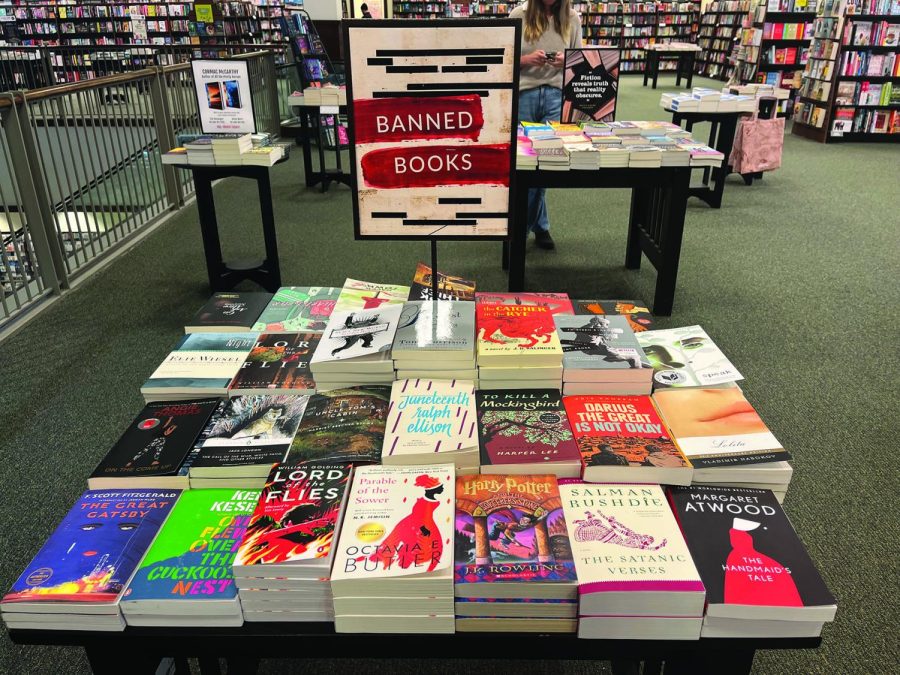Banned books silence speech
Local library condemns censorship
Throughout certain parts of the country, books are being stripped from the shelves of schools and libraries.
Nationally, books are being banned and challenged, but at the Glenbrook North Library and the Northbrook Public Library, no books have been banned, said Amanda Margis, assistant manager of youth services for the Northbrook Public Library and GBN librarian Ana Palmer.
According to Jason Griffith, assistant professor of education at Penn State, a book is considered to be challenged when someone raises an issue with a book’s content.
The book is then brought to the library or school board, where they have the power to ban the book and limit access for readers, Griffith said.
In the past few years, the majority of books being challenged and banned cover racial and gender issues, Griffith said.
While reading “The Hate U Give,” a commonly challenged book about a Black high school student who battles systemic racism, senior Felicia Pace’s worldview opened up due to the character’s experiences encountering racism.
“Reading about other experiences is really important to opening up your worldview and getting to know all the other cultures and backgrounds that exist,” Pace said.
“There [are] a million people, a million different other [cultures] and you want to understand all of that,” Pace said.
According to Margis, although there have not been any formally challenged or banned books at the Northbrook Public Library, the library has received feedback from community members who disagree with some of the books in the library’s collection.
“Not every book is appropriate for every person, every child, every family, that is a true thing,” said Margis. “We still need to have that material available for those people that it is appropriate for and that do need [the material].”
The Northbrook Public Library raised awareness about book banning and censorship. The library had multiple banned books on display and posted on social media about the importance of the freedom to read during national Banned Books Week from Sept. 18 to Sept. 24.
If people are aware that book banning is happening, they will get active and contact their library boards and school boards to act against book banning, which will create a ripple effect not just in the Northbrook community, but in other communities as well, Margis said.
According to Griffith, students unable to access banned books lose the opportunity to understand other perspectives.
“I think [the classroom] is a relatively safe space by which we can respectfully disagree, and we can learn about other people’s perspectives and debate various perspectives,” said Griffith. “So I think that is what is being lost in the places where these books are being banned.”


